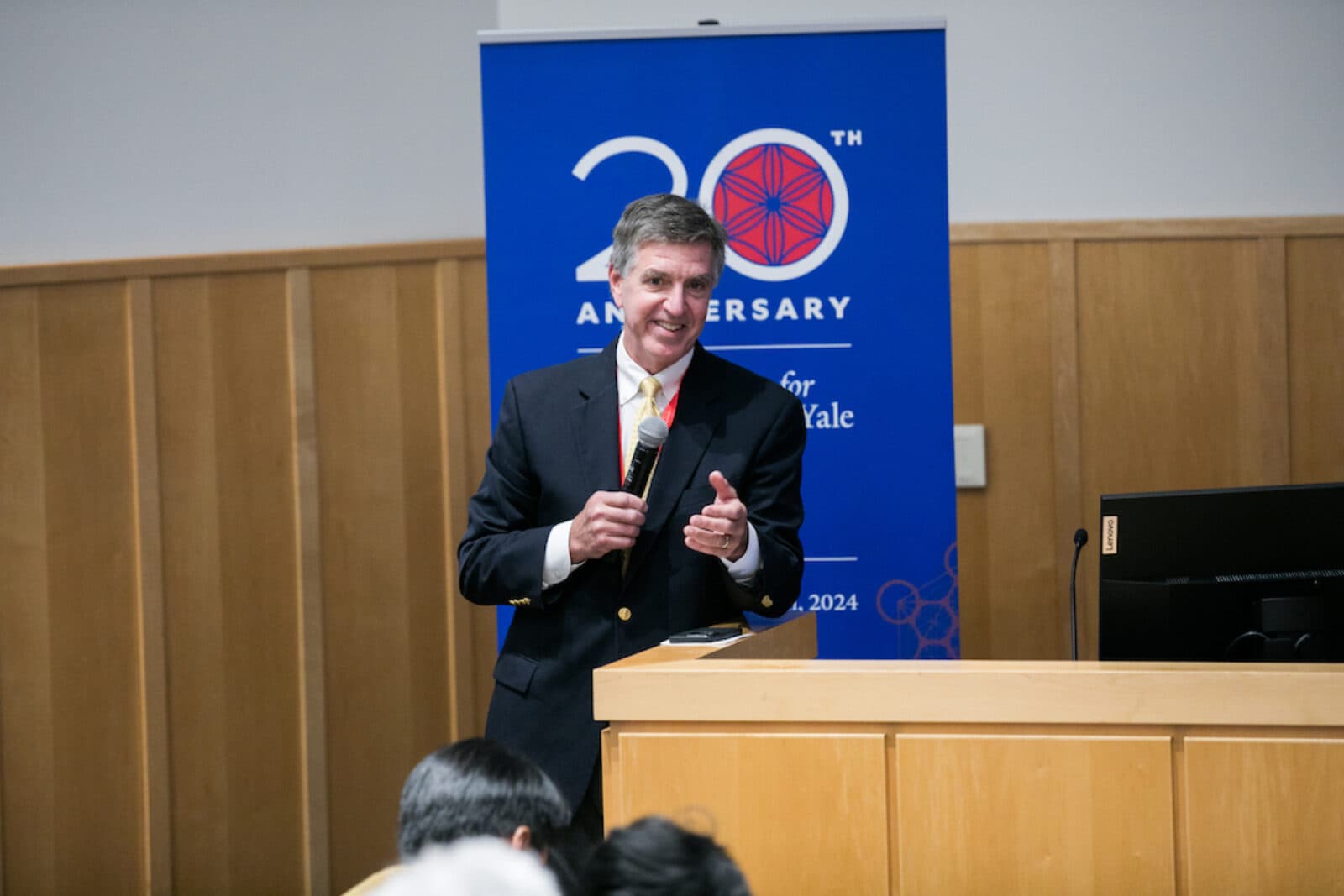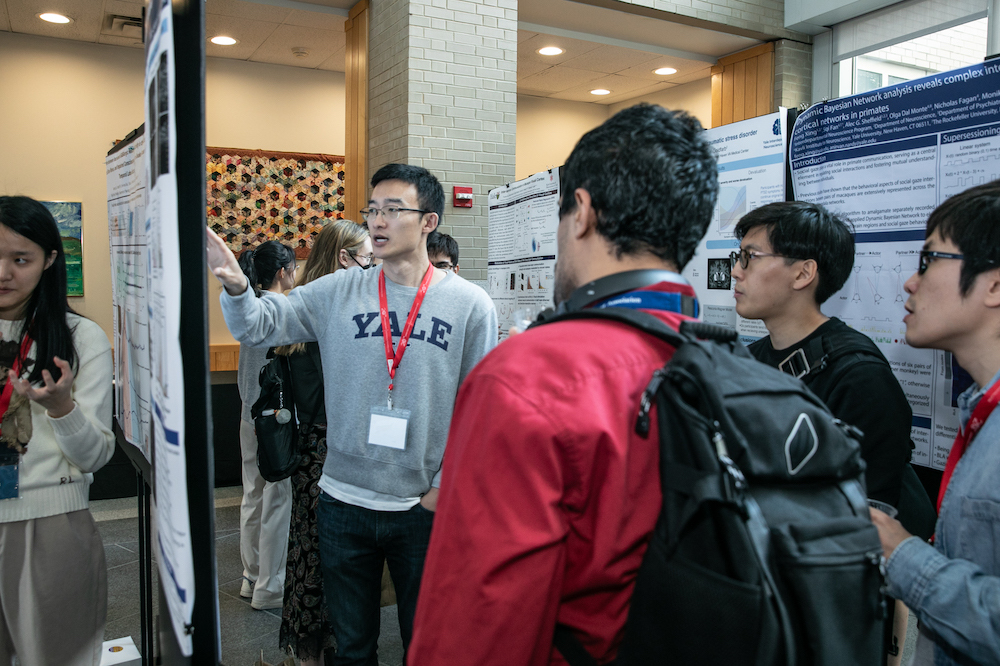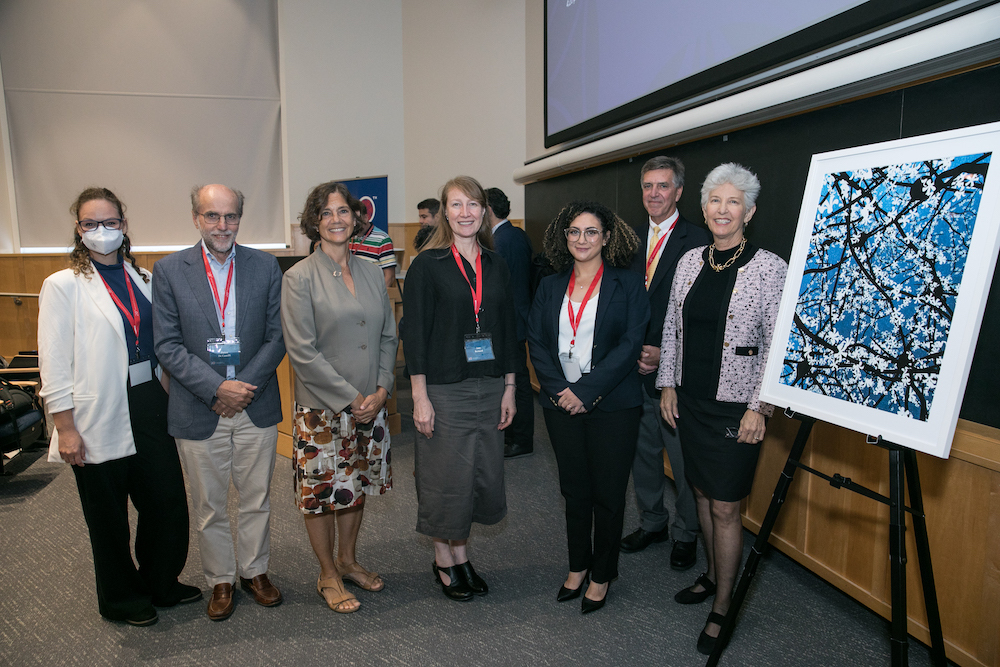Two Decades of Transformative and Collaborative Neuroscience
Kavli Institute for Neuroscience at Yale Celebrates 20 Years

Established in 2004 at Yale University, the Kavli Institute for Neuroscience’s was launched to explore how the structure and development of the brain ultimately gives rise to human thought, under the leadership of Professor Pasko Rakic. Over the last 20 years, this Kavli Institute has grown and expanded to include over 120 neuroscience labs across 24 academic departments, creating a diverse group of scientists who investigate many fields within neuroscience. Today, the Kavli Institute pursues a mission to understand how genes, molecules, cells, and neural circuits interact to give rise to brain development and behavior, and to apply this knowledge to advance treatments for brain disorders.
The Kavli Institute for Neuroscience at Yale celebrated its 20th anniversary with a special symposium on September 20th, 2024, attended by over 200 faculty, students, alumni, and friends. Leaders from the past and present reflected on the remarkable achievements made by members of the Kavli Institute, and future-looking research presentations were delivered by esteemed affiliates of the Yale neuroscience community and beyond.

The Kavli Insitute provides a rich combination of programming, funding opportunities, and facilities for the Yale neuroscience community and beyond, focusing on developing talent, collaboration, diversity, and inclusion.
In addition, the Kavli Institute enables access to advanced technologies open to all Yale neuroscientists, by establishing and supporting shared facilities such as the Rodent Behavioral Analysis Core and the Neurotechnology Core, and by providing support to Neuroscience microscopy facilities.
“During its first 20 years, the Kavli Institute of Neuroscience at Yale played a critical role in uniting neuroscientists across diverse Departments at Yale, and in providing specialized technologies to advance our understanding of brain function and dysfunction at the molecular, cellular and systems levels,” said Stephen Strittmatter, director of the Kavli Institute of Neuroscience.
This foundational approach to cultivating a strong community of science has yielded impressive results. With over 150 affiliated faculty members, hundreds of research publications, over 80 grants and fellowships awarded, and numerous postdoctoral fellowships and awards for academic accomplishments, the Kavli Institute is poised to catalyze more discoveries over the next 20 years.
